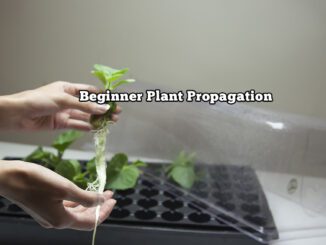
Hydroponic lettuce facility Spring Born closes in western Garfield County
Indoor Farming Distribution Barriers. | Cassandra Ballard |
Image: Ray K. Erku/Post Independent
A nearly 4-acre hydroponic agriculture facility near Silt recently visited by Gov. Jared Polis now sits dark, stymied by what the owner said was an inability to distribute in larger regional market chains.
The lights turned off Dec. 27 at the once vibrant facility with the potential of providing economic prosperity and employment to the region, along with a new approach to Colorado agriculture that was heavily supported by politicians both in the region and statewide, including Polis.
“We saw the future of agriculture today,” Polis said in August while visiting the facility, “the future of food production, and it’s a more sustainable future, which it has to be when we’re having these tough discussions about the Colorado River Compact and the changing nature of water in the west.”
Over the summer, Polis signed House Bill 22-1301, which utilizes hydroponic indoor farming for controlled environment growing year-round in Colorado and uses less water than traditional agriculture methods.
“There’s three or four large scale facilities in Colorado; this the largest. and we’re going to be seeing more,” Polis said in August 2022.
So, what happened?
The facility opened in June 2021 and started supplying lettuce in August that same year. The initial funds to build the property were a $30 million expense financed by the United States Department of Agriculture, and the Colorado Commercial Property Assessed Clean Energy.
After doubling sales in December 2022 and getting onboard with Sysco for distribution, Spring Born’s main investor pulled out, forcing the facility to close at the end of the year.
“This facility was designed to feed the state, not just local businesses,” Spring Born CEO Charles Barr said. “So, the size just didn’t match and I can’t get it to the state unless I have distribution partners, or I have retail partners.”
Whole Foods and local grocery markets also carried Spring Born’s products on the shelves, while the other larger scale companies would not seem to budge.
Yet the Garfield Re-2 School District was just about to try their first shipment of lettuce in an ongoing attempt to buy as much local produce for the school district as they can, said Theresa Hamilton, the district’s director of communications.

When Barr spoke with many of the retail wholesale buyers, they never complained about the price, he said.
Persistence was also no issue. He made sure to get his product sampled and known throughout the region and inside of all of the local retail companies, including the Glenwood Vaudeville Revue.
“They were extremely amenable and passionate, and the product was better than other brands,” John Goss, the owner of Glenwood Vaudeville Revue said.
Goss went on to add that since the lettuce came to him so clean and fresh, it saved him prep time and money. There was also none of the dead leaf specks that are usually found in those plastic box casings.
Breaking into large chains such as City Market proved difficult, however. Barr said that when he spoke to the buyers they had no interest in picking up the locally grown product.
Corporately-run chain grocery stores have buyers that can purchase for entire regions and/or typically go through a third party distribution company. Those companies decide what products work best for them.
Barr said he was told these companies had enough lettuce suppliers while there were lettuce shortages in Glenwood, Rifle and Aspen. He was told to get signed on with wholesale distribution companies that would in turn refuse to buy from him.
“I know sometimes that’s a matter of distribution, in terms of those retail stores’ policies of purchasing, distributing from Canada, their central distribution points,” Tom Lipetzky, the Colorado Department of Agriculture’s director of marketing programs and strategic initiatives said. “And, that can sometimes be very frustrating for consumers, but, yet, we know there’s all kinds of Colorado produce out there.”
Outside of freshly getting onboard with Cisco, getting added as a supplier for restaurant distribution companies was just as challenging.
“The local community could not have been more welcoming,” Barr said. “It was, we had a list of 400 restaurants that wanted us and we couldn’t get the product to them. We couldn’t get it to them through distribution.”
Original Article: https://www.postindependent.com/news/hydroponic-lettuce-facility-spring-born-closes-in-western-garfield-county/



